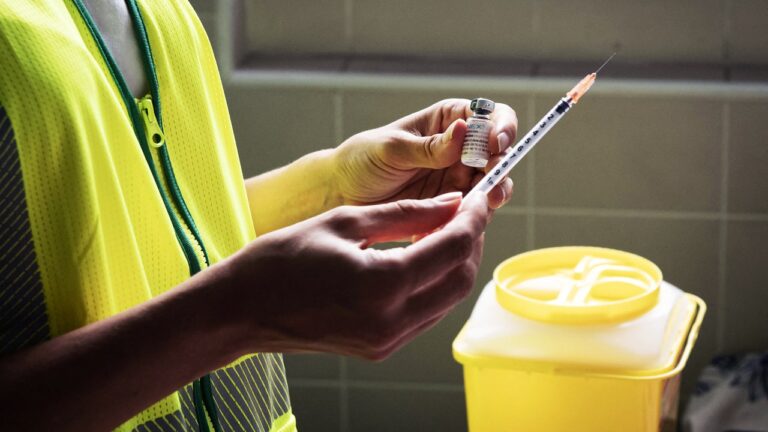In a run-of-the-mill business park in Kvistgård, a Danish village about 25 miles north of Copenhagen encircled by forests, lies one of the most crucial solutions for controlling the global monkeypox outbreak.
These are the manufacturing facilities of Bavarian Nordic, the biotech company that is the sole producer of the most advanced vaccine for monkeypox. Called Jynneos in the United States, Imvanex in Europe, and Imvamune in Canada. The vaccine is the only one that has been approved by the European Medicines Agency. And the US Food and Drug Administration for preventing people from developing or transmitting monkeypox.
The problem? Bavarian Nordic’s manufacturing facilities have been shut until very recently. Most of the vaccine doses it produced before it closed are currently sitting frozen in plastic bags, not yet usable. Meanwhile, the monkeypox outbreak has been declared a public health emergency of international concern. With more than 27,000 cases—mostly traceable to sexual or skin-to-skin contact among men who have sex with men—in 88 countries.
In a desperately untimely twist of fate
Bavarian Nordic closed its bulk manufacturing facility in the spring of 2022 to focus on its other vaccine products, including vaccines for rabies and encephalitis. The company had expected to reopen the facility in the third quarter of this year, and it is “reopening as we speak,” Thomas Duschek, communications partner for Bavarian Nordic, told me. He says it will be operating at full speed within the next month or so, and will be reopening with two production lines as opposed to the previous one. The company is also considering moving to a 24-hour production cycle to meet demands, although this hasn’t happened yet, Duschek says. Bavarian Nordic may also postpone the production of other vaccines to prioritize production of the monkeypox vaccine.
The company is also looking at contracting other manufacturers to ramp up production. It has already inked a deal with a US company, the name of which remains confidential. The problem is that the vaccine is complex to make, so it would take months for another manufacturer to get up to speed. Even at Bavarian Nordic, Duschek reckons it will be half a year at minimum before newly produced vaccines start being shipped.
The WHO has said
It thinks there are around 16 million doses of the vaccine available right now globally, which, by its estimates, should be enough to contain the outbreak. But there’s a snag, and it’s a big one: Most are still in their bulk form, meaning they still need to be transferred from those frozen bags into vials for use, a process known as “fill and finish”—and this will take several months, Bavarian Nordic says. The WHO is reportedly in talks with other manufacturers who could chip in and speed up the process. In the US, the New York Times reported that health authorities are negotiating with a factory in Michigan to help bottle 2.5 million doses.
The other catch is that most of these doses have already been snapped up by the US, despite only a quarter of global cases being located in the Americas, with no deaths reported.

